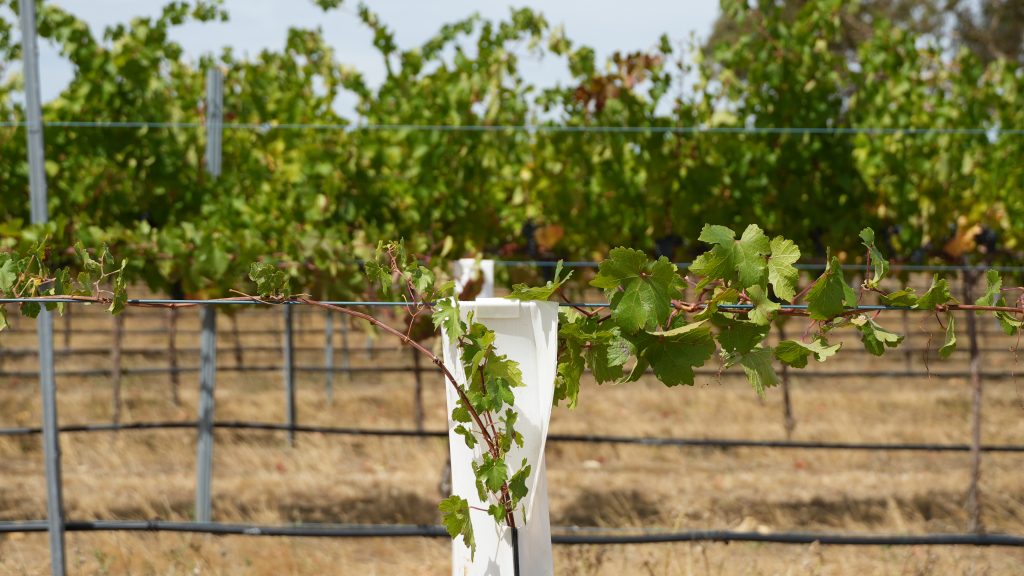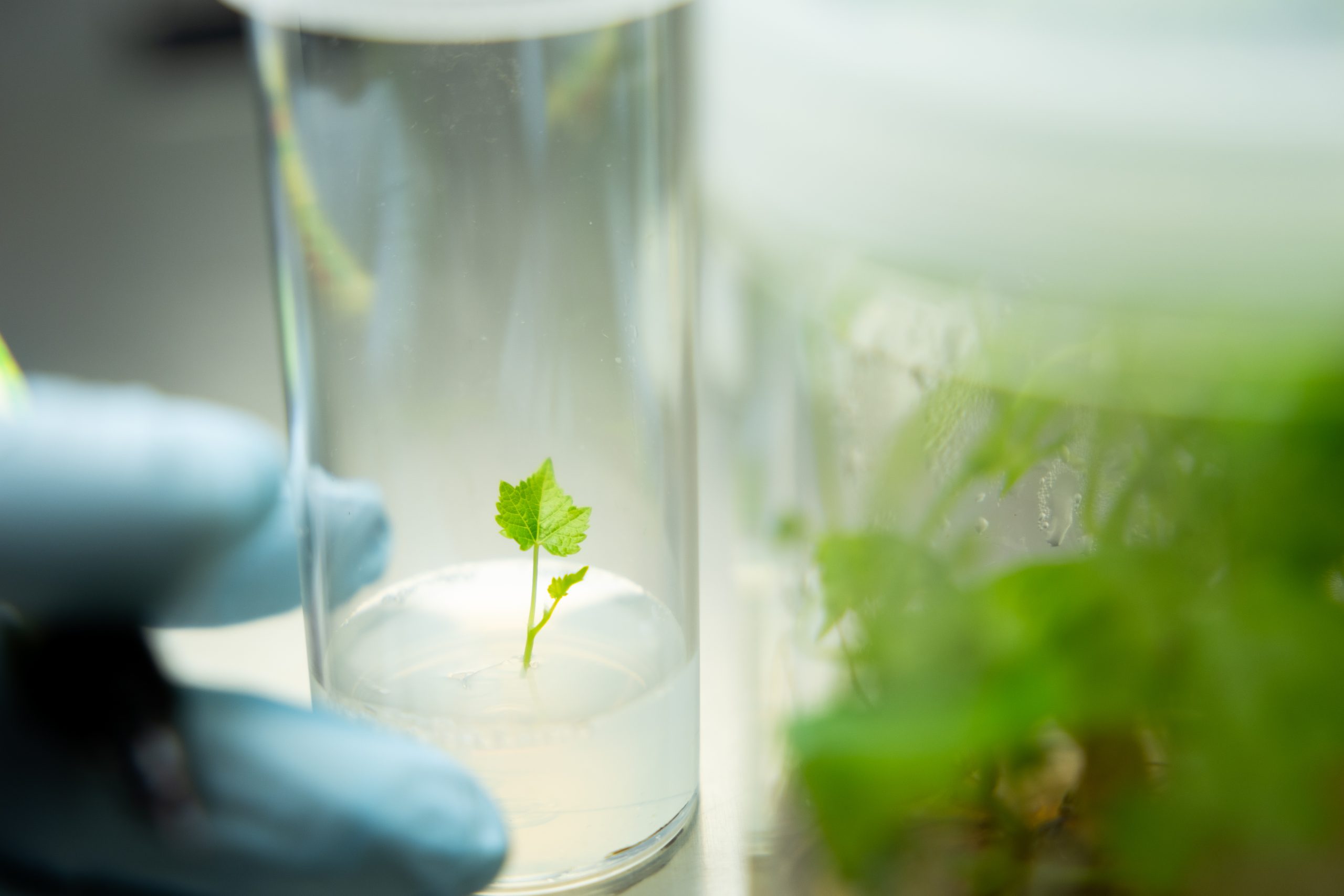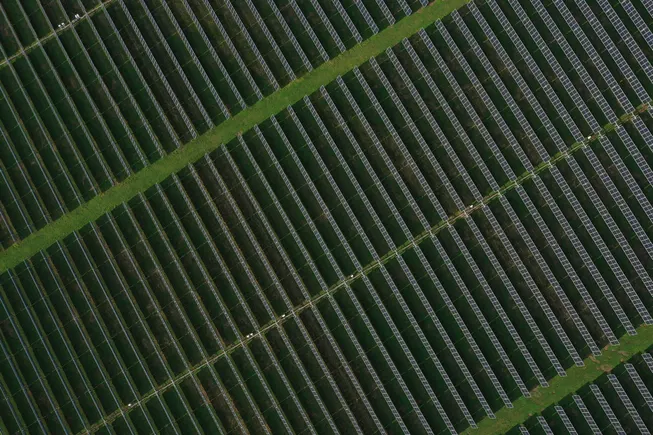Australian wine producers are hoping that a new trial in Coonawarra by Treasury Wine Estates (TWE) will future-proof the country's wine industry against mildew and drought with the trial of new robust and resistant grape vine cultivars.

Australia's National Science Agency (CSIRO) has teamed up with the country's famed producer to plant specially bred new vines at TWE's Wynns Coonawarra Estate, which take genetic material from TWE’s naturally climate-resilient heritage vines in Coonawarra and Barossa Valley, combined with vines that has been bred to be mildew-resistant by CSIRO.
The project received funding from Wine Australia which was matched by the Australian federal government.
According to CSIRO research scientist Dr Paul Bossm, who lead the project, breeding mildew-resistance into "elite vines" gives future grapevines a genetic advantage to withstand the disease-causing pathogens that cost the Australian wine sector an estimated $160 million in management expenses and production losses each year.
“Using traditional breeding methods, we introduced two distinct genes to the Wynns heritage vines, which give resistance to downy mildew and powdery mildew,” Boss said. “These are from CSIRO-developed breeding lines that confer robust disease resistance and other quality traits onto their progeny.
“Having resistance genes for both powdery and downy mildew makes these plants more robust as it is unlikely the pathogens can break both sources of resistance with a single mutation.”
Treasury Wine Estates's chief supply & sustainability officer Kerrin Petty said that creating mildew resistant vines that were also able to withstand climatic variation would set up the its vineyards to continue producing world-famous wine "for generations to come”.
The global wine industry has faced significant challenges managing grapevine disease pressure in a sustainable way while managing the increasingly variable growing conditions created by the changing climate, he said. However, combining the mildew-resistant properties with the natural resilience of the heritage vines in both Coonawara and Barossa that has been built over years of of hot, cold, wet and dry climate extremes, would make them "prime candidates for further development to enhance their tolerance to climate extremes".
“In partnering with CSIRO for this important project, we’re combining the genetics of heritage Australian vines from our renowned Wynns Coonawarra Estate and Penfolds brands with scientific research and innovation," he said.
The new "elite" cultivars will benefit growers as they will require fewer treatment of fungicide sprays, which should help lower the carbon emissions as diesel-powered tractors will not need to be used so often in the vineyards.
The project demonstrates how science innovation can be used to bolster adaptation to a changing climate and manage disease pressure, providing knowledge that benefits the wider Australian wine sector to become more sustainable into the future.

 Australia's National Science Agency (CSIRO) has teamed up with the country's famed producer to plant specially bred new vines at TWE's Wynns Coonawarra Estate, which take genetic material from TWE’s naturally climate-resilient heritage vines in Coonawarra and Barossa Valley, combined with vines that has been bred to be mildew-resistant by CSIRO.
The project received funding from Wine Australia which was matched by the Australian federal government.
According to CSIRO research scientist Dr Paul Bossm, who lead the project, breeding mildew-resistance into "elite vines" gives future grapevines a genetic advantage to withstand the disease-causing pathogens that cost the Australian wine sector an estimated $160 million in management expenses and production losses each year.
“Using traditional breeding methods, we introduced two distinct genes to the Wynns heritage vines, which give resistance to downy mildew and powdery mildew,” Boss said. “These are from CSIRO-developed breeding lines that confer robust disease resistance and other quality traits onto their progeny.
“Having resistance genes for both powdery and downy mildew makes these plants more robust as it is unlikely the pathogens can break both sources of resistance with a single mutation.”
Treasury Wine Estates's chief supply & sustainability officer Kerrin Petty said that creating mildew resistant vines that were also able to withstand climatic variation would set up the its vineyards to continue producing world-famous wine "for generations to come”.
The global wine industry has faced significant challenges managing grapevine disease pressure in a sustainable way while managing the increasingly variable growing conditions created by the changing climate, he said. However, combining the mildew-resistant properties with the natural resilience of the heritage vines in both Coonawara and Barossa that has been built over years of of hot, cold, wet and dry climate extremes, would make them "prime candidates for further development to enhance their tolerance to climate extremes".
“In partnering with CSIRO for this important project, we’re combining the genetics of heritage Australian vines from our renowned Wynns Coonawarra Estate and Penfolds brands with scientific research and innovation," he said.
The new "elite" cultivars will benefit growers as they will require fewer treatment of fungicide sprays, which should help lower the carbon emissions as diesel-powered tractors will not need to be used so often in the vineyards.
The project demonstrates how science innovation can be used to bolster adaptation to a changing climate and manage disease pressure, providing knowledge that benefits the wider Australian wine sector to become more sustainable into the future.
Australia's National Science Agency (CSIRO) has teamed up with the country's famed producer to plant specially bred new vines at TWE's Wynns Coonawarra Estate, which take genetic material from TWE’s naturally climate-resilient heritage vines in Coonawarra and Barossa Valley, combined with vines that has been bred to be mildew-resistant by CSIRO.
The project received funding from Wine Australia which was matched by the Australian federal government.
According to CSIRO research scientist Dr Paul Bossm, who lead the project, breeding mildew-resistance into "elite vines" gives future grapevines a genetic advantage to withstand the disease-causing pathogens that cost the Australian wine sector an estimated $160 million in management expenses and production losses each year.
“Using traditional breeding methods, we introduced two distinct genes to the Wynns heritage vines, which give resistance to downy mildew and powdery mildew,” Boss said. “These are from CSIRO-developed breeding lines that confer robust disease resistance and other quality traits onto their progeny.
“Having resistance genes for both powdery and downy mildew makes these plants more robust as it is unlikely the pathogens can break both sources of resistance with a single mutation.”
Treasury Wine Estates's chief supply & sustainability officer Kerrin Petty said that creating mildew resistant vines that were also able to withstand climatic variation would set up the its vineyards to continue producing world-famous wine "for generations to come”.
The global wine industry has faced significant challenges managing grapevine disease pressure in a sustainable way while managing the increasingly variable growing conditions created by the changing climate, he said. However, combining the mildew-resistant properties with the natural resilience of the heritage vines in both Coonawara and Barossa that has been built over years of of hot, cold, wet and dry climate extremes, would make them "prime candidates for further development to enhance their tolerance to climate extremes".
“In partnering with CSIRO for this important project, we’re combining the genetics of heritage Australian vines from our renowned Wynns Coonawarra Estate and Penfolds brands with scientific research and innovation," he said.
The new "elite" cultivars will benefit growers as they will require fewer treatment of fungicide sprays, which should help lower the carbon emissions as diesel-powered tractors will not need to be used so often in the vineyards.
The project demonstrates how science innovation can be used to bolster adaptation to a changing climate and manage disease pressure, providing knowledge that benefits the wider Australian wine sector to become more sustainable into the future. 


































































































































































.jpg)
.jpg)
.jpg)








